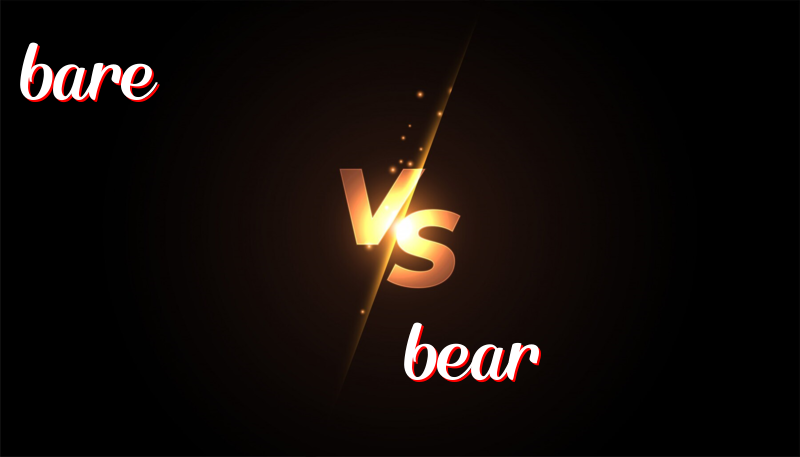Understanding the Difference Between Bare and Bear
Understanding Bare vs. Bear
Many people find the words “bare” and “bear” a bit tricky because they sound alike, but they mean different things. Let’s look at each word closely to understand how they are used.
History of the Words
The word “bare” has been used in English for a long time. It comes from old words that mean “open” or “empty.” The word “bear” also has a long history. It can mean the big, furry animal, but it also has other meanings from older words that mean “to carry” or “to hold up.”
How to Use “Bare”
“Bare” is an adjective. It means not covered or empty.
- The room was bare because there was no furniture.
- She walked with bare feet on the grass.
- In winter, the tree branches are bare.
- The walls were bare, with no pictures hanging.
- His speech was bare of emotion, simple and clear.
How to Use “Bear”
“Bear” can be a noun or a verb. As a noun, it is the animal. As a verb, it means to carry or to handle something difficult.
- We saw a bear in the forest.
- The bridge must bear the weight of many cars.
- She could hardly bear the heavy box.
- The bear searched for food in the river.
- He tried to bear the pain bravely.
Trick to Remember the Difference
To remember the difference, think of this: “Bare” is for something plain or empty (like a room without furniture), while “bear” can be the animal, or it means to carry something (like carrying a heavy load).
Summary
In summary, “bare” means something without cover or empty, and it is often used as an adjective. “Bear” can mean the animal, or it can be used as a verb to mean carrying or handling something hard. Remember these differences to use them correctly in your writing.

Leave a Reply
You must be logged in to post a comment.